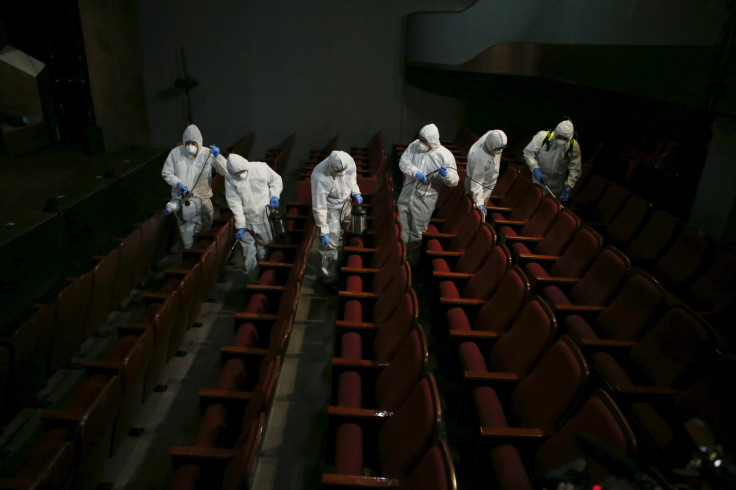MERS Outbreak: South Korea Plans Stimulus Package For $13.5B To Tackle Economic Impact Of Viral Disease

The South Korean government said Thursday that it will pass a stimulus package of over 15 trillion won ($13.5 billion) to help cushion the impact of the latest outbreak of the Middle East Respiratory Syndrome (MERS) in the country. The finance ministry also cut the country’s economic growth forecast for this year to 3.1 percent, down from 3.8 percent projected late last year.
The move comes as the country faces economic woes amid an outbreak that has already claimed the lives of 29 people and infected 180 people. The finance ministry also projected the inflation at 0.7 percent for 2015 from its earlier forecast of 2 percent, Reuters reported. The South Korean currency weakened 0.2 percent to 1,110.70 per dollar while trading in Seoul at 11:31 a.m., according to Bloomberg, while the Kospi index fell 0.1 percent. The consumer confidence in June dropped to the lowest levels since December 2012 while the tourism industry has been hit hard as over 120,000 tourists canceled their trips to the country since the disease's outbreak in May.
"The trend of economic recovery wasn't that strong due to sluggish exports and other issues, and sustaining the MERS shock, the economy may not catch up with the originally projected growth course," Finance Minister Choi Kyung-hwan said, according to Yonhap, adding: "In the one and a half months after the outbreak of MERS, the negative impact started to appear quickly mainly in the consumption and services industries."
The ministry, however, expects South Korea's economic conditions to slowly improve and hopes that domestic consumption will be the driving force. The current account surplus is estimated to reach $94 billion this year, up from $82 billion expected earlier, Reuters reported.
“We’re trying to cope with shocks from non-economic issues by boosting fiscal spending sufficiently and keeping it expansionary,” Lee Chan Woo, a director general at the finance ministry, said, according to Bloomberg, adding: “This supplementary budget is to offset the effect of the Middle East Respiratory Syndrome, the drought, and to help low-income earners.”
Addressing a policy coordination meeting with the ruling Saenuri Party on Thursday, Choi said that the economy continues to face challenges due to MERS and sluggish exports. He added that the ministry will take proactive measures to fight the disease, which was first reported in 2012 in Saudi Arabia.
There is no vaccine for the viral disease yet, but a report by Yonhap on Thursday said that 74 people who were diagnosed with the disease were discharged from the hospital after recovery. Over 14,500 people were quarantined after the country reported its first case on May 20, but 11,936 of them have been since released after not showing any symptoms during the 14 day-incubation period.
© Copyright IBTimes 2025. All rights reserved.






















